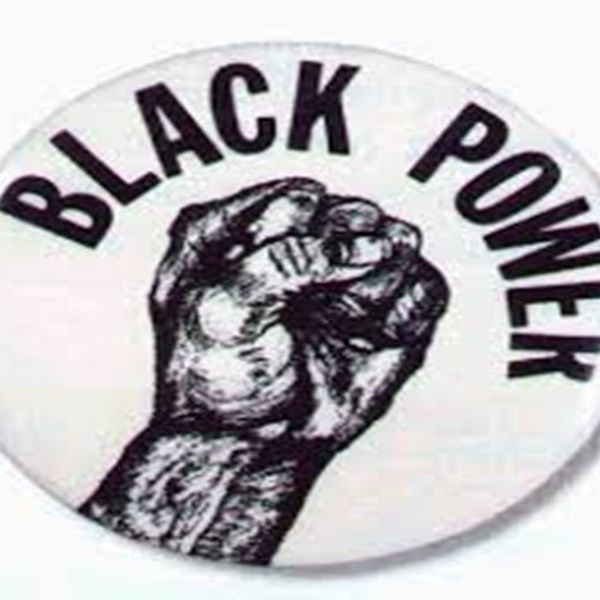Asians. Asian Americans. They are considered to be people of color (POC) in the United States. Like any minority, Asian Americans have had little representation in the media since 1940s. Since 2000, only 1 percent of Asian Americans were nominated for the Oscars. Non-Asian actors such Scarlett Johansson and Nate Wolf are criticized for being cast as characters that were of Asian decent. Asian Americans including actress Constance Wu and Emmy-nominated actor/comedian Aziz Ansari take a stand on Asian representation in America's pop culture, and not just in K-Pop or anime. Despite these progressive changes, there is one question that needs to be answered for Asians and Asian Americans-- who are POC:
Can Asians say the "n" word?
Not naega, Korean word for "I," or na ge/na yi ge, Mandarin for "that." The "N" word."
Recently, BamBam, a member of popular K-Pop group GOT7, got into controversy when a Snapchat video of him using the "N" word went viral. During the incident, BamBam was attending an L.A. pool party held by his fellow member Mark, while they were on their world tour. Many fans quickly found the video on Twitter and scolded him, even demanding that he should be kicked out of the group. While BamBam did apologize for his mistake, he wasn't the only Asian who has done it.
Warning: Foul language
Omg I just found a video of mark's friends pic.twitter.com/1dfOTFLodr
— L (@kinkerbell_) July 14, 2016
Black culture is often showcased by music, movies, television, etc... Like everyone else, Asians and Asian Americans grew up listening to black artists and respecting their music such as Bruno Mars (he's half Filipino), Dumbfounded and Timothy DeLAGhetto. They learned from the content they loved, then started to imitate what they observed without understanding why wearing a bandana, throwing gang signs, and lip-syncing the "N" word were problematic.
Just to be clear, BamBam was born and raised in Thailand. He was a foreigner when he flew to the states with his group. Fans found out that Mark's friends at the pool party taught him that word and how it meant "friend" or "brother." Aside from manipulating the poor guy, BamBam was a huge fan of dabbing and whipping the Nae Nae. He's constantly dabbing to his hit songs in front of screaming fans.
Like BamBam, many Asians outside of America didn't know what the "N" word meant. While they understood it was bad, they assumed it was another fun American swear word such as "shit" or "fuck" because that word is constantly played in hip-hop music. They learn from watching music videos and listening to Bigge, Nicki Minaj and that "Nae Nae" guy. They were never taught what the "N" word means and why it was really bad to say in front of Black Americans and African Americans.
Many people accused Asian Americans who used the "N" word for wanting to be "black."
However, there are Asian Americans who do more than blasting Drake through their speakers. "Letters To BLM" is an organization that brought many Asian Americans together to write an open letter on why they support Black Lives Matter. While this doesn't answer my "N" word question, this letter shines the light on Asian community who are stepping up and respecting not only Black culture but also supporting Black community.
Am I saying you should give up listening to Beyonce or stop watching a marathon of The Game on BET? No.
As an Asian American woman, I still rock to Beyonce's "Lemonade" album. I still quote anything Steve Urkel from "Family Matters." However, I am not excused to say the "N" word. It still holds a hurtful feeling towards the black community with ill history. The "N" word degrades a black person and disrespecting them for their heritage and as a person.
Personally, I get uncomfortable using the "N" word. In my first class in college, my class was required to read August Wilson's "Ma Rainey's Black Bottom" out loud. My class didn't have one black or African American person. My professor wasn't African American. Before I raised my hand if I could censor myself saying the "N" word, my professor wanted everyone not to censor ourselves. I had to read and say the "N" word. Because I needed a good grade, I forced myself to read it but tried to look for a character who doesn't say the "N" word at all. Hearing everyone popcorn read the "N" word in different parts, I almost screamed. I wanted to shout out an alternative word if anyone walked past my classroom.
What was worse, I had to read a different line with the "n" word. I have never used the "N" word in my life, not even when I sang along to Jay-Z's "Blueprint III" album. I refused to say it. But I ended up biting my tongue and read that word, all for a good grade. After class was over, I wanted to go up to run up to every Black and African American and apologize. I wanted to Google search where August Wilson's grave is, dig up his corpse, and apologize. Saying the "N" word felt like I had offended the entire black community. The "N" word has been used towards Black and African Americans since they were slaves on plantations. It is still used today but holds so much painful history. It is like non-Asian people using a derogatory term for Asian, towards Asian Americans.
To me, the "N" word is a disrespectful way to call a Black/African American person's name. A refusal to call them by their names, degrading their culture, history, and how far they have come to be visible in today's society.
If you want to be ignorant and ignore my reason not to use it, go ahead. But remember this: don't justify what the "N" word means. Don't create a rule for yourself when to use it and not to use it like some people in this video. Whether you say it around your black friends or when you're talking about them, the "N" word will mean the same thing. It will still be offensive. If you have black friends and classmates and use the "N" word, you are disrespecting them. You will lose them. If you did, please apologize to them. Learn why you shouldn't say the "N" word. BamBam did. If a K-Pop singer can learn from his mistake, I'm sure you can too.
Instead, learn Korean or Chinese. So if you happen to say "naega" or "na ge," you can kindly explain its language difference. But if you tried to be sneaky and take an advantage on both languages, you are screwed.
Forget what I said. Just don't use it.





















